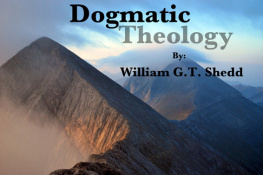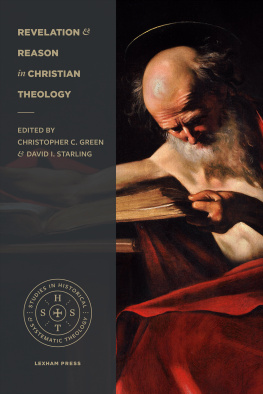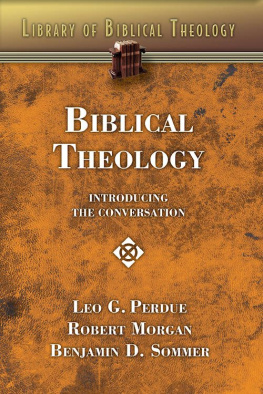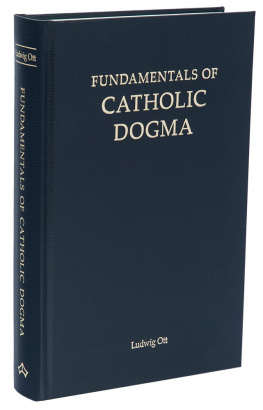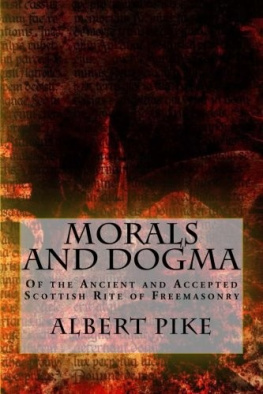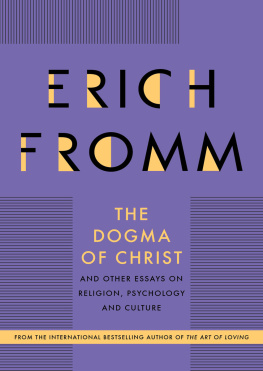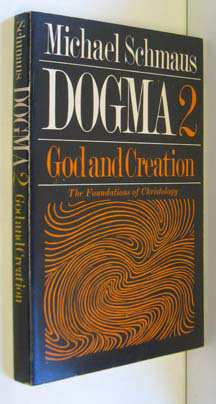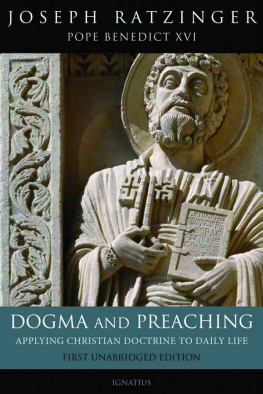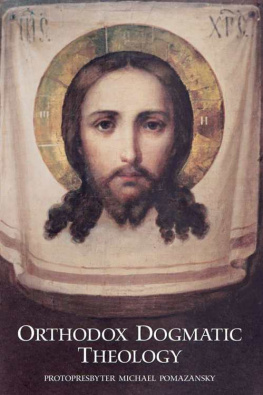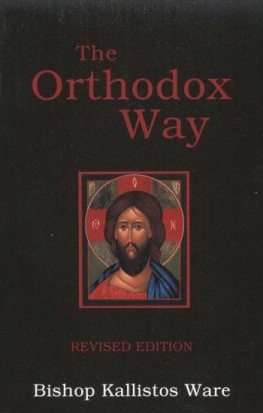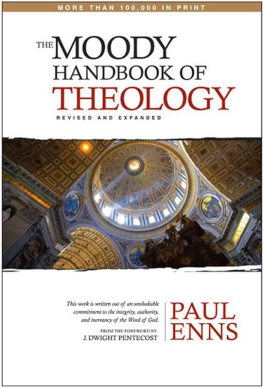Dogmatic Theology
Vol. I
By:
William G. T. Shedd
Roosevelt Professor of Systematic Theology in UnionTheological Seminary
New York
CONTENTS
PREFACE
The immediate preparation of thistreatise began in 1870, when the author was called to give instruction for ayear in the department of Systematic Theology, in Union Theological Seminary.The work was resumed in 1874, when he was elected to this professorship, andwas prosecuted down to 1888. But some general preparation had been made for it,by previous studies and publications. The writer had composed a History ofChristian Doctrine in the years 1854-1862, which was published in 1863; andalso a volume of Theological Essays containing discussions on original sin andvicarious atonement, and a volume of Sermons to the Natural Man predominantlytheological in their contents. The doctrinal system here presented will befound to be closely connected with these preceding investigations; and thiswill explain the somewhat frequent references to them as parts of one whole.The Dogmatic History is the natural introduction to the Dogmatic Theology.
The general type of doctrine is theAugustino-Calvinistic Upon a few points, the elder Calvinism has been followedin preference to the later. This, probably, is the principal difference betweenthis treatise and contemporary ones of the Calvinistic class.
Upon the subject of Adam's sin andits imputation, the author has been constrained to differ from some theologiansfor whom he has the highest respect, and with whom he has in general a hearty agreement.In adopting the traducian theory of the origin of the soul, in the interest ofthe immediate imputation of the first sin, he believes that he has the supportof some of the most careful students of Scripture, and deepest thinkers in thehistory of the Church. This theory, however, even when adopted has not attainedmuch explication. Some further development of it has been attempted; with whatsuccess, the reader must judge. The doctrine of the Trinity has beenconstructed upon the Nicene basis, but with more reference to the necessaryconditions of personality and self-consciousness, and the objections to thepersonality of the Infinite introduced by modern pantheism. In respect to theontological argument for the Divine Existence, the author is in sympathy withthe a priori spirit of the old theology. The statement of the doctrine ofDecrees, and of Regeneration, is founded upon the postulate, that all holinesshas its source in the Infinite will, and all sin in the self-determination ofthe Finite.
It will be objected by some to thisdogmatic system that it has been too much influenced by the patristic,mediaeval, and reformation periods, and too little by the so-called"progress" of modern theology. The charge of scholasticism, and perhapsof speculativeness, will be made. The author has no disposition to repel thecharge. While acknowledging the excellences of the present period in respect tothe practical application and spread of religion, he cannot regard it aspre-eminent above all others in scientific theology. It is his conviction, thatthere were some minds in the former ages of Christianity who were called byProvidence to do a work that will never be outgrown and left behind by theChristian Church; some men who thought more deeply, and came nearer to thecentre of truth, upon some subjects, than any modern minds. Non omnia possumusomnes. No one age, or church, is in advance of all other ages, or churches, inall things. It would be difficult to mention an intellect in the eighteenth or nineteenthcenturies whose reflection upon the metaphysical being and nature of God hasbeen more profound than that of Anselm; whose thinking upon the Trinity hasbeen more subtle and discriminating than that of Athanasius; whosecontemplation of the great mystery of sin has been more comprehensive andsearching than that of Augustine; whose apprehension of the doctrine ofatonement has been more accurate than that formulated in the creeds of theReformation.
In drawing from these earliersources, the writer believes that systematic theology will be made both moretruthful and more vital. Confinement to modern opinions tends to thinness andweakness. The latest intelligence is of more value in a newspaper than in ascientific treatise. If an author in any department gets into the eddies of hisage, and whirls round and round in them, he knows little of the sweep of thevast stream of the ages which holds on its way forever and forevermore. If thistreatise has any merits, they are due very much to daily and nightly communionwith that noble army of theologians which is composed of the elite of thefathers, of the schoolmen, of the reformers, and of the seventeenth centurydivines of England and the Continent. And let it not be supposed that thisinfluence of the theologians is at the expense of that of the Scriptures. Thisis one of the vulgar errors. Scientific and contemplative theology is the childof Eevelation. It is the very Word of God itself as this has been studied,collated, combined, and systematized by powerful, devout, and prayerfulintellects.
In closing up the labors of fortyyears in theological research and meditation, the writer is naturally thesubject of serious thoughts and feelings. The vastness and mystery of thescience oppress him more than ever. But the evangelical irradiations of the Sunof righteousness out of the thick darkness and clouds that envelop the Infiniteand Adorable God, are beams of intense brightness which pour the light of lifeand of hope into the utter gloom in which man must live here upon earth, if herejects Divine Revelation. That this treatise may contribute to strengthen thebeliever's confidence in this revelation, and to incline the unbeliever toexercise faith in it, is the prayer of the author.
Union Theological Seminary,
New York, May 1, 1888
THEOLOGICAL INTRODUCTION
Chapter I The True Method inTheological Science
These are a few topics that requireto be discussed preparatory to the investigation of the several divisions intheological science. Some writers bring them under the head of Prolegomena, andothers under the general title of Introduction.
The principal of these introductorytopics are: The true method in theological science. The plan, divisions, andsubdivisions. The nature and definition of theological science.
The true method of investigation inany science is natural. It coincides with the structure of the object. Themethod in anatomy is a good example. It follows the veins, if veins are thesubject-matter; the muscles, if muscles are; the nerves, if nerves are. It doesnot cross and recross, but pursues a straight-onward course. The naturalmethod, consequently, is marked by ease and freedom. There is no effort toforce a way through. "He winds into his subject like a serpent," saidGoldsmith of Burke's oratorical method.
The natural method necessitates athorough knowledge of the nature and structure of the object. It is thereforegenerally the result of much study, and perhaps of many attempts. The firstinvestigator is not so likely to strike upon the intrinsic constitution of athing as the last one, because he has not the light of previous inquiries.Methods of investigation are continually undergoing correction andmodification, and are thus brought closer to the organization of the object.Sometimes scientific genius hits by intuition immediately upon the method ofnature. But such genius is rare. Ordinary talent must make many trials, andcorrect many errors of predecessors. The botanical method of Linnaeus,excellent as it is, has been modified by Le Jussieu and De Candolle. Goetheadopted the theory that all the parts of a plant are varieties of the leaf atheory that had been suggested by Linnaeus himself, but rejected by that greatnaturalist. Oken, in physiology, advanced the view that all the parts of theskeleton are varieties of the vertebra. It is evident that the correctness ofthe methods of these investigators depends upon whether the view taken of theintrinsic nature and constitution of the plant or the skeleton is a correctone.
Next page
